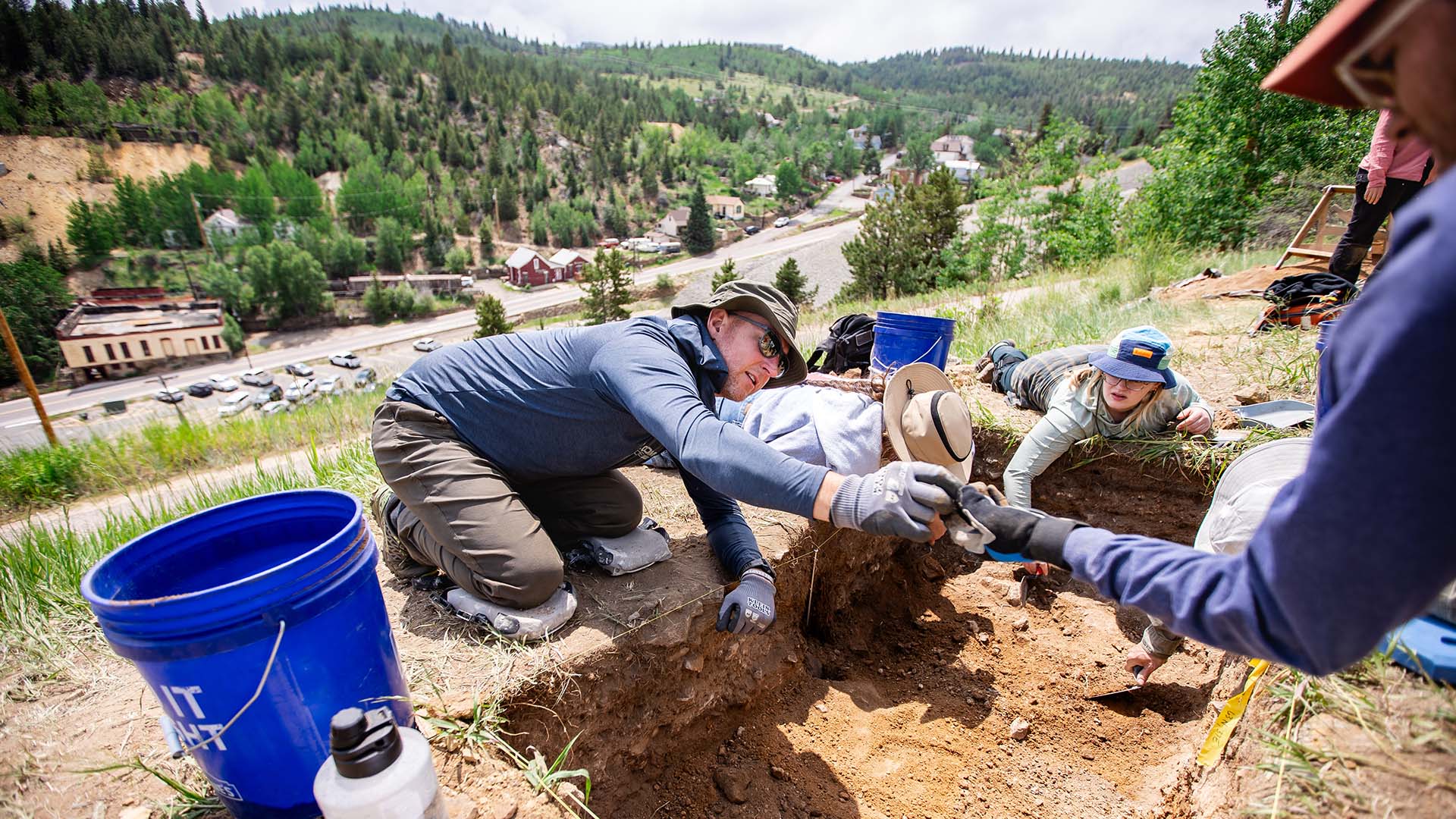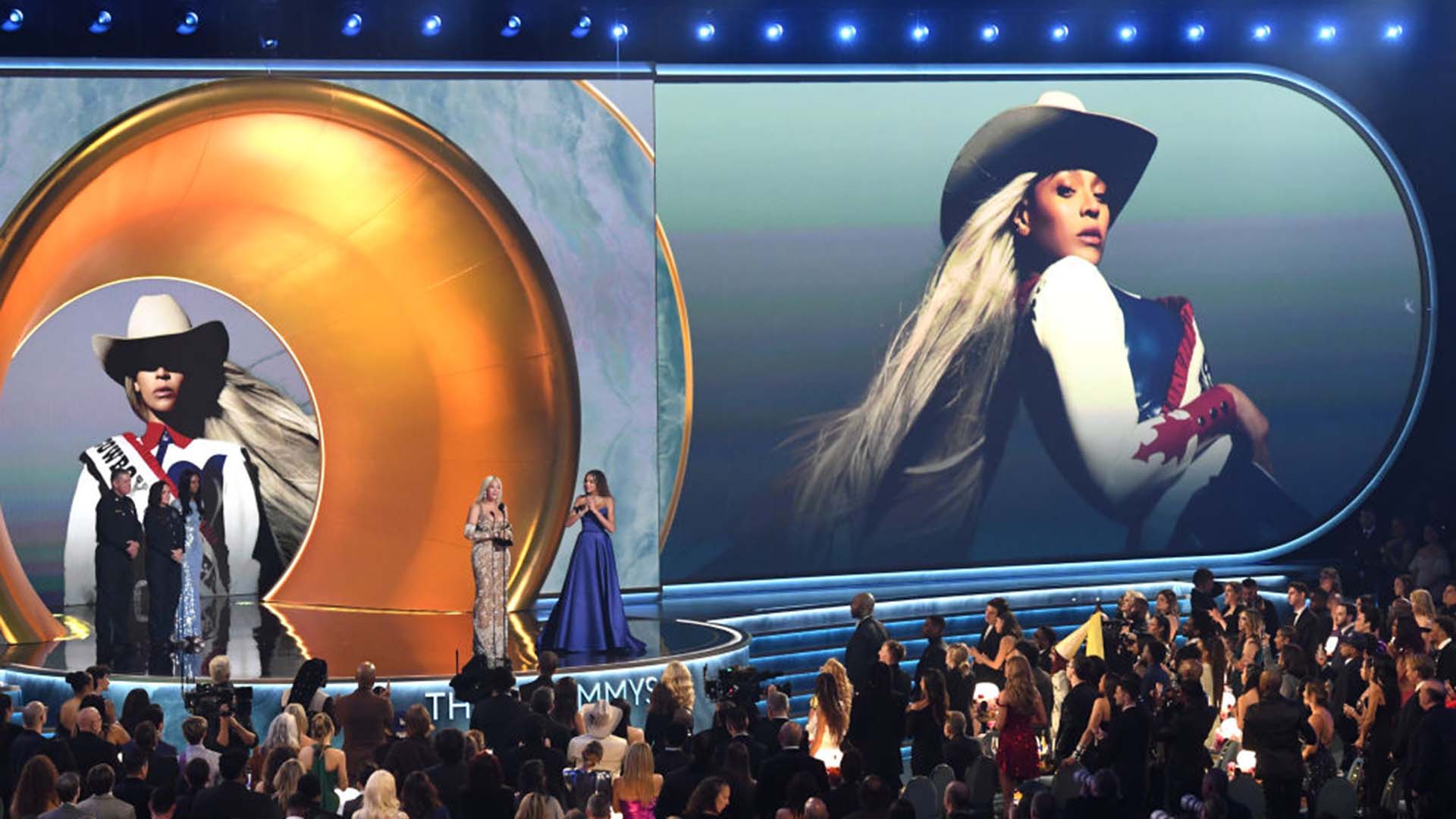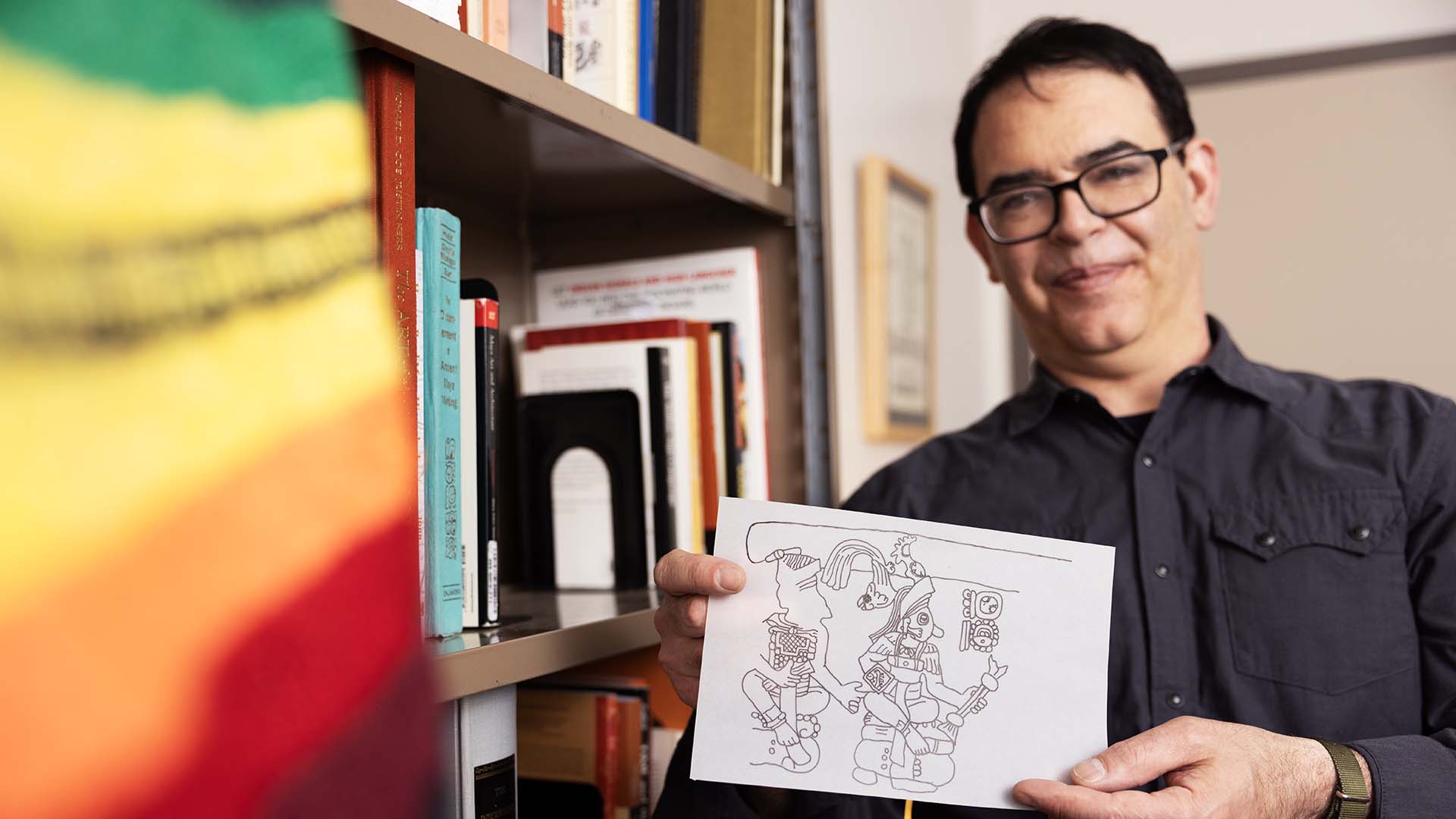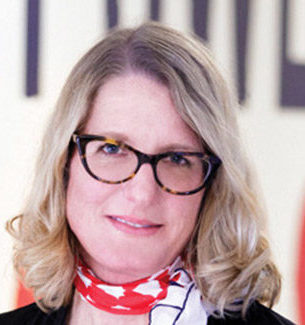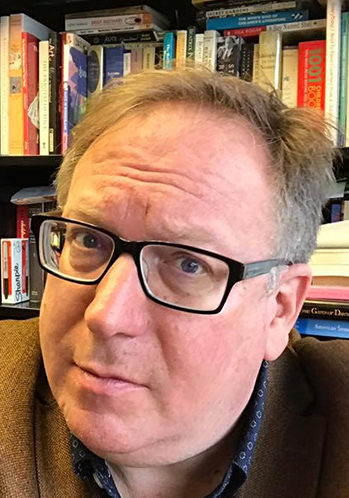Insightful design, one page at a time
Emily Zimmermann’s vision is to speak to the heart of access – for blind-friendly websites, and beyond.
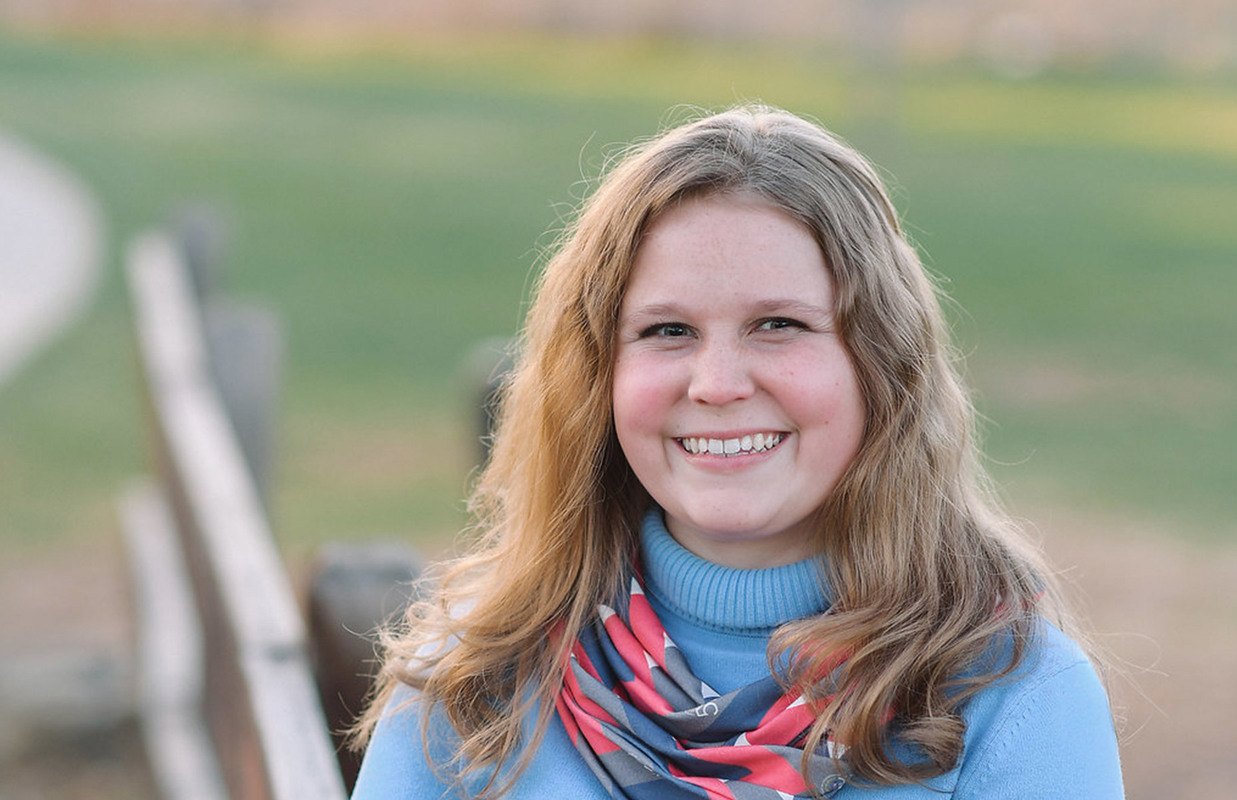
There’s a lot of information on the internet, as well as guidelines to help ensure it’s accessible to everyone.
The only problem? Even compliant websites are largely built by – and for – people who can see.
That’s where Emily Zimmermann comes in. The 2017 communications graduate has just wrapped up an internship in the president’s office as a webpage-accessibility tester, where she has helped the University optimize digital presence for all users to experience.
“In compliance work, we aim to meet legal requirements,” said Angela Marquez, associate director of equal opportunity. “Emily’s work allows us to go beyond compliance and ensure all users can access the information they need. Her perspective speaks to the heart of what we do.”
According to Zimmermann, the experience has given her unique insight into opportunities she hadn’t considered before.
“It’s opened my eyes to a job that I didn’t even know existed before, and what I’m doing is helping to make the site more accessible to people, like myself, who are blind,” she said.

Seeing it from her perspective
Zimmermann grew up in South Carolina living what she considered a normal life – running, playing outside, laughing; a happy childhood.
Then, as a freshman in high school, she noticed she had trouble reading the chalkboard, leading to a visit to her eye doctor.
“From the movies, I knew there was a big letter E on the eye chart – but I just couldn’t see it,” Zimmermann said.
An MRI revealed a softball-sized tumor pushing on her optic nerve, causing her vision loss. After two surgeries initially restored her vision, the growth returned as Zimmermann entered her sophomore year in high school.
Third and fourth surgeries attempted to remove the tumor to fix the lack of blood flow to the nerve, but by then it was too late – she had permanently lost her sight.
“I couldn’t prevent this,” she said. “I just happened to be someone who became blind.”
Zimmermann said the already difficult adolescent challenges were exponentially more so with the loss of vision. But her new personal challenge also gave her perspective into her own perseverance and will to succeed.
“I was thinking about how I could’ve just gotten my license – all of those other high school things were gone,” she said. “So many of my friends drifted away and disappeared, too.”
“But by then, you just have to learn to deal with everything.”
Rocky Mountains bound
Two weeks after graduating from high school, Zimmermann had another life-changing event: She flew out West on her own to the Colorado Center for the Blind in Littleton, where she enrolled in classes empowering independence through cooking, travel, braille and adaptive technologies.
After completing the program, she had fallen in love with Colorado, and explored going to college.
And although she first chose MSU Denver for its lower tuition, she described how the faculty commitment and supportive community helped make the University a home.
“The classes are small enough to make you feel like you matter to the professors – and you do!” Zimmermann said. “They know your name; you’re not just another number. I’ve been incredibly happy here and am so proud to be a Roadrunner.”

Concrete work and a positive attitude
One of the instructors who had a significant impact was Mike Monsour, assistant professor of speech communication and one of her faculty advisors.
He detailed how through in-depth conversation, Zimmermann discovered the impact of – and her aptitude in – accessibility design.
“We talked about stimulating her intellect,” said Mounsour. “[Technology] wasn’t her initial area; she was a little hesitant – but now she’s using her blindness to help benefit others in a concrete way.”
According to Laura Lempe, equity specialist with the Equal Opportunity and president’s offices, Zimmermann took to her role with a deft thoroughness and a can-do spirit.
“Emily attacks a problem and looks at it from all sides, working with the web accessibility team to make connections,” Lempe said. “And you can’t help but be impressed by her positive attitude!”
Adds Marquez: “She’s good. She does what needs to be done so everyone benefits. It’s incredibly valuable to have her on board.”
Inspiration to move forward
Determination is a Roadrunner trademark characteristic. For Zimmermann, it’s also a quality to inspire others.
Already an accomplished motivational speaker, she continues to share her story of hope and faith recently recounted in a biography penned by her mother, Janet.
One encounter in particular stands out for her: She described how, after a high school speaking engagement, a student came up to her and confided that she had been contemplating suicide. Zimmermann’s story of resilience and optimism, however, helped the student pass through the darkest valley possible.
“The impact of turning things around was huge,” said Zimmermann. “That really stuck with me – all the stuff I’d been through could help save a life.”

Broken crayons still color
Being assisted by her father across the stage to receive her diploma is emblematic of the support she credits coming from her family and the MSU Denver community, and of her own will to succeed in the face of any future odds she may face.
According to Monsour, it’s no wonder “…she is the perfect role model for anyone facing hardship; she’s lost something, but has found the gift of vision.”
For Zimmermann, that means embracing acceptance and focusing on the road ahead, inspiring others along the way.
“I like the idea that ‘broken crayons still color,’ because even though you might have to do things differently, you can still do them,” she said.
“Everyone has challenges, just like me, but they can find a way to overcome them.”

